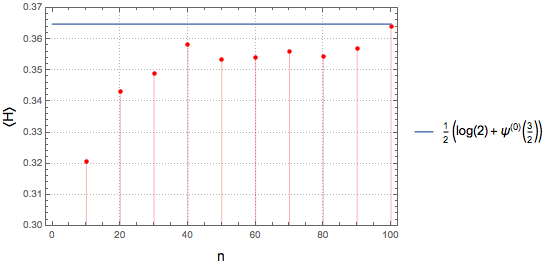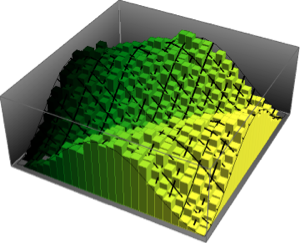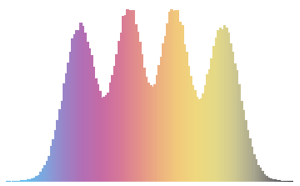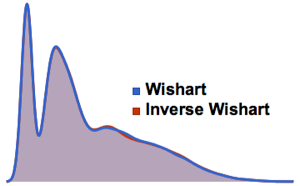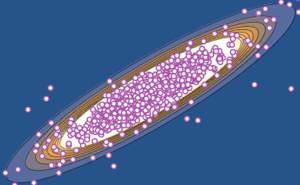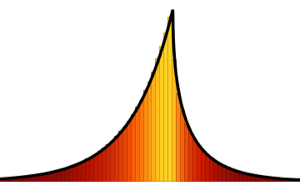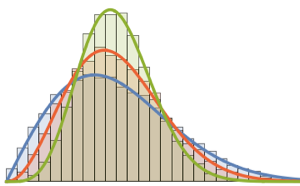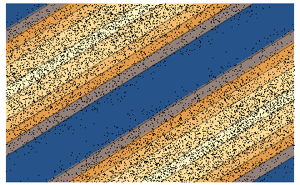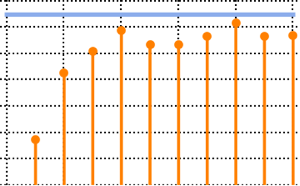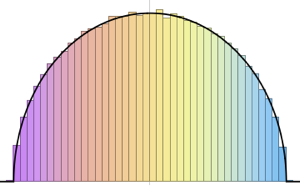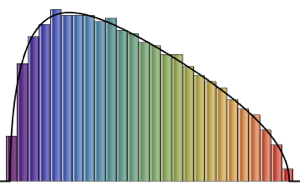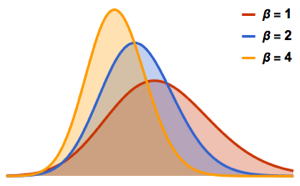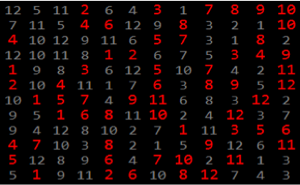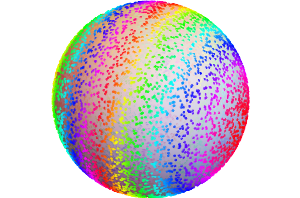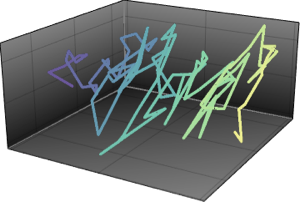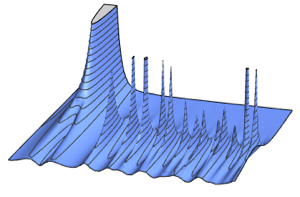Dyson Coulomb Gas
The joint distribution of the eigenvalues of a matrix following CircularOrthogonalMatrixDistribution is equivalent to the Boltzmann distribution of Dyson's Coulomb gas on a circle with inverse temperature  . Define the average Hamiltonian (without the kinetic terms) per particle.
. Define the average Hamiltonian (without the kinetic terms) per particle.
In[1]:=

hamiltonian[Z_] := Module[{n = Length[Z]},
Log[n]/2 - Sum[Total[Log[Abs[Differences[Z, 1, k]]]], {k, n - 1}]/n
]Define the distribution of the Hamiltonian.
In[2]:=
h\[ScriptCapitalD] =
MatrixPropertyDistribution[hamiltonian[Eigenvalues[x]],
x \[Distributed] CircularOrthogonalMatrixDistribution[n]];Compute the sample mean of the Hamiltonian for systems of different size.
In[3]:=
means = Table[{n, Mean[RandomVariate[h\[ScriptCapitalD], 1000]]}, {n,
10, 100, 10}];Plot the sample means and compare them with the thermodynamic limit.
show complete Wolfram Language input
Out[4]=
